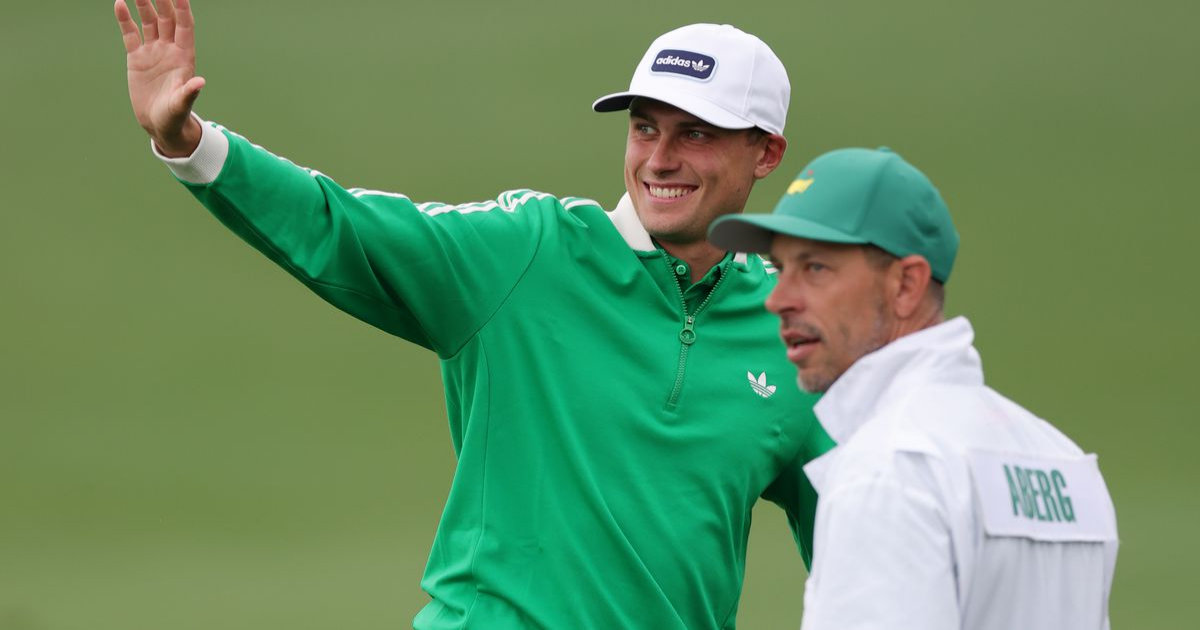AUGUSTA, Ga. — The greatest thing about Augusta National and The Masters Tournament has nothing to do with Amen Corner, Pimento Cheese sandwiches, or the Azaleas that perfectly blossom all around.
It’s their most sacred rule instead.
No cell phones.
As all of us have become addicted to checking our little screens, posting or watching TikToks, seeking that dopamine rush from getting a like or comment from some faraway stranger, or constantly messaging our friends. We have lost a part of what makes humanity so special: having proper social interactions, making eye contact, and engaging with each other.
Over the past five years, especially since the height of the pandemic, really, I’ve faced countless situations where I am sitting in a room with friends and family and everything quickly turns into silence. Why? Everyone turns to their phones to check who knows what. And whatever they are looking at pales in comparison to the importance of the relationships within the room. They are not asking about their day-to-day activities, problems that they face, or triumphs they have achieved. Instead, they are staring blankly into their screens, receiving an onslaught of content and information that will not be remembered a mere 24 hours later. And is that content and information even factual? Can you challenge it? That’s a whole separate discussion in and of itself. Still, our society surrounded by screens is perhaps part of what George Orwell warned about in his famous novel, 1984, which I consider the most crucial piece of literature any high school student will read. (Do high schoolers even read physical books anymore? Or is it all on screens?)
Yet, nobody seems particularly bothered by this reality. We are all living through these screens, with the average adult spending four to five hours a day on their smartphones, staring. Multiply that by 365 days per year, divide that total by 24 hours, and you are spending 68.5 days collectively on your phone — more than two months’ worth!
Why is this not talked about more?
As I traverse the grounds at Augusta National, this troubling reality is eons away. You talk to everyone you sit next to and immediately make a connection. Maybe you and the patron sitting next to you bond over a logo you are wearing. This happened to me. I happily wore a light blue quarter zip with a small red Dayton Flyers crest emblazoned on my front left chest. My younger sister is a student there, and I struck up a conversation with an individual who sent their children to the University of Dayton as well.
Other conversations often stem from a simple, “Where are you from!?”
As a native of Rochester, New York, someone I met said they hailed from nearby Buffalo, and knew of someone who attended my high school alma mater, McQuaid Jesuit, because, of course.
And of course — of course — these conversations always turn to golf, a sport that everyone in this holy cathedral holds near and dear to their heart. Who is going to win this week? Scottie Scheffler or Rory McIlroy? Or maybe it’s Jon Rahm, Bryson DeChambeau, or Collin Morikawa? Everyone here seems to be rooting for McIlroy to complete the career Grand Slam, but all of us want to see the 89th playing of The Masters Tournament deliver a terrific finish down the stretch.
How about the young phenom Ludvig Åberg, who finished solo second in his Masters debut last year? He has the game to win the Green Jacket, no doubt.
But what impressed me the most about Åberg’s session with the media on Tuesday had nothing to do with his technicality, memories of last year, or his victory earlier this season at the Genesis Invitational.
Like me, his favorite part about Augusta National is that nobody can enter the property with their cell phone.
“One thing that’s very underrated about Augusta — it’s not underrated, but I think just because of the fact that the patrons don’t have their phones out, it actually makes it feel like they’re so much more engaged,” Åberg said.
“It’s a lot more eye contact with the fans. It’s a lot more — you can really tell that they watch and appreciate good golf. The fact that no one is on their phone, no one is taking pictures, no one is doing that, it feels like they’re a lot more engaged, which I, as a player, really appreciate. I think that’s very cool.”
More eye contact. More engaged.
The world outside of Augusta National needs more of that.
But those fortunate enough to enter these heavenly gates enter a sphere without screen time, social media, or 24/7 communication. Instead, everyone converses with each other, shares stories, relates to one another, and most importantly, remains in the present. It’s a slice of utopia, really, especially when comparing it to the dystopia that social media, smartphones, and the 24-hour newscycle have done to our society.
Perhaps this is an extremely cynical outlook on where we stand in 2025. But if we fail to discuss this issue, won’t it worsen? Isn’t that what happened in Orwell’s 1984?
So cheers to Ludvig Åberg, one of the younger players in this field, for recognizing the essence, the significance, and the beauty of Augusta National turning back the clock and bringing together people from all over the world to talk with each other — but never through a screen.
Jack Milko is a golf staff writer for SB Nation’s Playing Through. Follow him on X @jack_milko.
